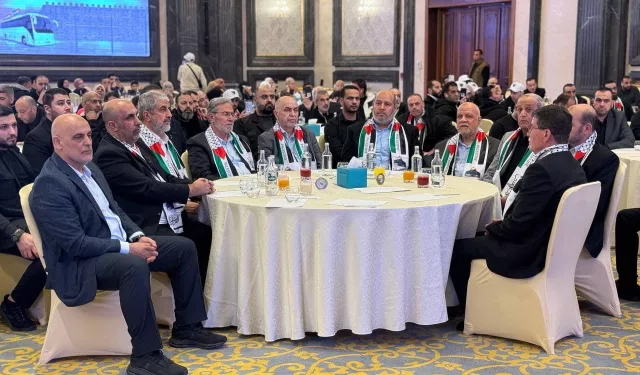A senior Hamas official said Monday that the Palestinian Authority has rejected an Egyptian-backed proposal to form a 15-member committee to manage Gaza in the next stage of postwar talks.
The proposal, agreed in principle by Palestinian factions meeting in Cairo over the weekend, called for an independent, technocratic body to oversee civil administration in the Strip. The plan was discussed with two senior PA figures—Hussein Al Sheikh, President Mahmoud Abbas’s deputy, and intelligence chief Majed Faraj—who asked to refer the matter to Ramallah for review.
According to the Hamas source, the PA insisted the committee operate under its full authority, a stance the movement warned could stall progress and open the door for “an international committee” to take over Gaza’s governance.
An Egyptian official involved in the talks said the demand could face political resistance and likely objections from the United States and Israel.
Fatah Central Committee secretary Jibril Rajoub told Al Manassa earlier that any arrangement outside the PA “would entrench division and occupation,” echoing the leadership’s position that Gaza’s administration must remain tied to the Palestinian government.
The Hamas official affirmed that the group is ready to hand over all civil and security portfolios to the proposed committee and would accept a Ramallah-appointed minister as its chair if the sides can agree.
Potential Chair Named
Israeli media reported Sunday that Hamas had agreed to name Amjad Shawa, head of the Palestinian NGOs Network in Gaza, to lead the body. Shawa is widely regarded as an independent figure with no factional affiliation.
The Hamas official said the movement had offered “major concessions” in recent rounds and was coordinating closely with Egypt. He added that Hamas had accepted, in principle, a limited UN monitoring force deployed in buffer zones to oversee the ceasefire.
International force under discussion
US Secretary of State Marco Rubio said during a regional tour this week that several countries, including Egypt, Qatar, Turkey, Indonesia and Azerbaijan, have expressed readiness to join such a force. He said Washington might seek a UN Security Council resolution to authorize it.
Rubio also said US and Israeli intelligence have coordinated with mediators to prevent attacks that could derail the truce, claiming one such plot was foiled last week.
A second Hamas official told Al Manassa that the question of armed factions’ weapons had been postponed to later political talks. Mediators, he said, had proposed storing and decommissioning the weapons under a long-term truce that allows reconstruction to begin, which is a formula acceptable to Hamas.
Intensive diplomatic efforts by mediators in Egypt and the United States are continuing to anchor the ceasefire and prepare for the next phase—negotiations on Gaza’s administration and the gradual disarmament of armed groups.
That stage, part of an agreement announced earlier this month by US President Donald Trump, would follow Israel’s full military withdrawal from the Strip. Israeli officials have said they will not proceed until Hamas returns all remaining detainees and bodies.
So far, Israel has recovered 20 captives alive and 15 bodies of others killed in earlier strikes. Hamas says it needs more time and equipment to locate the rest. Egyptian teams began bringing in heavy machinery Saturday to assist the search, seen as a step toward advancing the next phase of talks and starting reconstruction.
